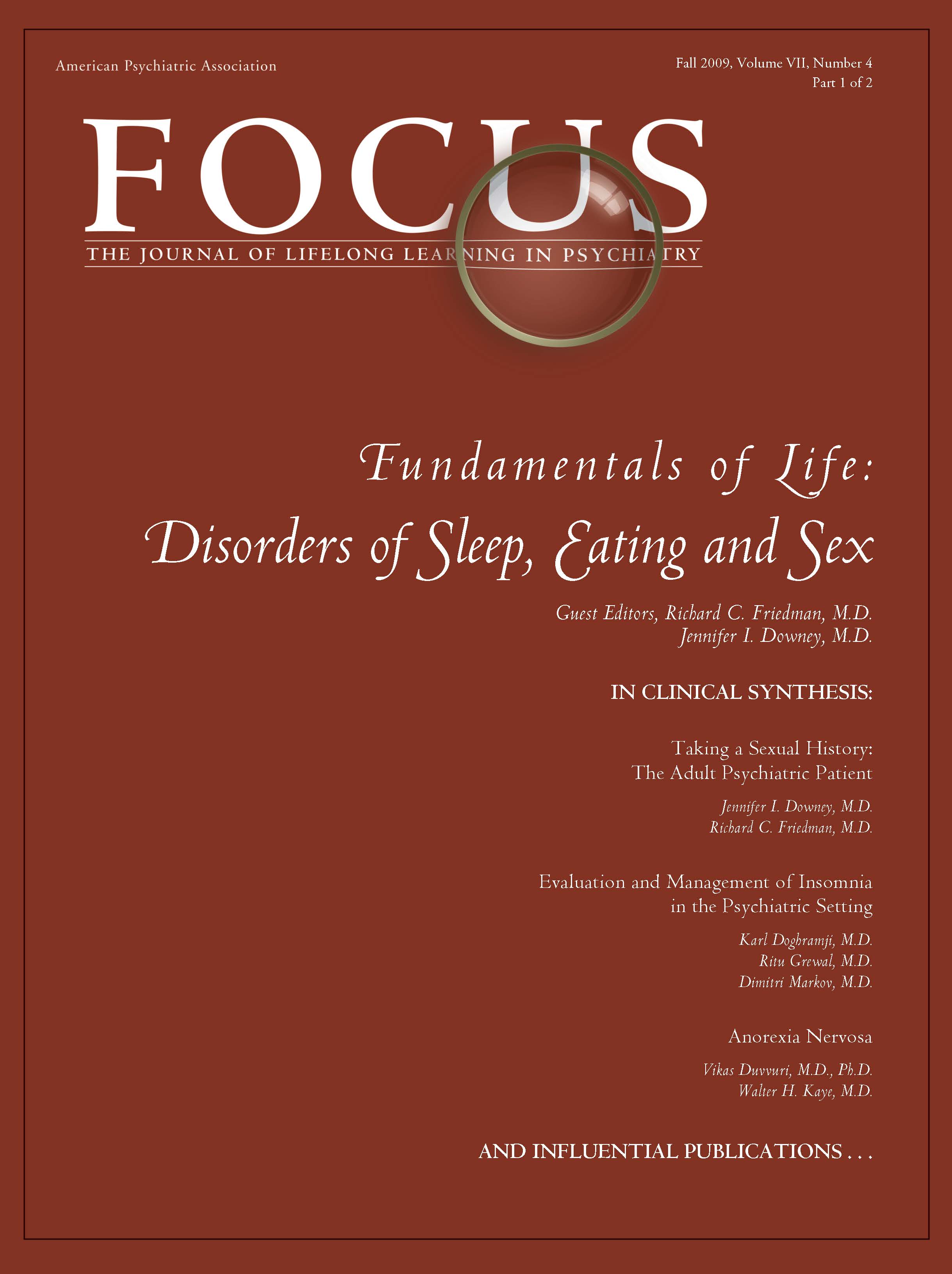Insomnia: Prevalence, Impact, Pathogenesis, Differential Diagnosis, and Evaluation
Abstract
Insomnia is the most common sleep disorder affecting millions of people as either a primary or comorbid condition. Insomnia has been defined as both a symptom and a disorder, and this distinction may affect its conceptualization from both research and clinical perspectives. Whether insomnia is viewed as a symptom or a disorder, however, it nevertheless has a profound effect on the individual and society. The burden of medical, psychiatric, interpersonal, and societal consequences that can be attributed to insomnia underscores the importance of understanding, diagnosing, and treating the disorder.



